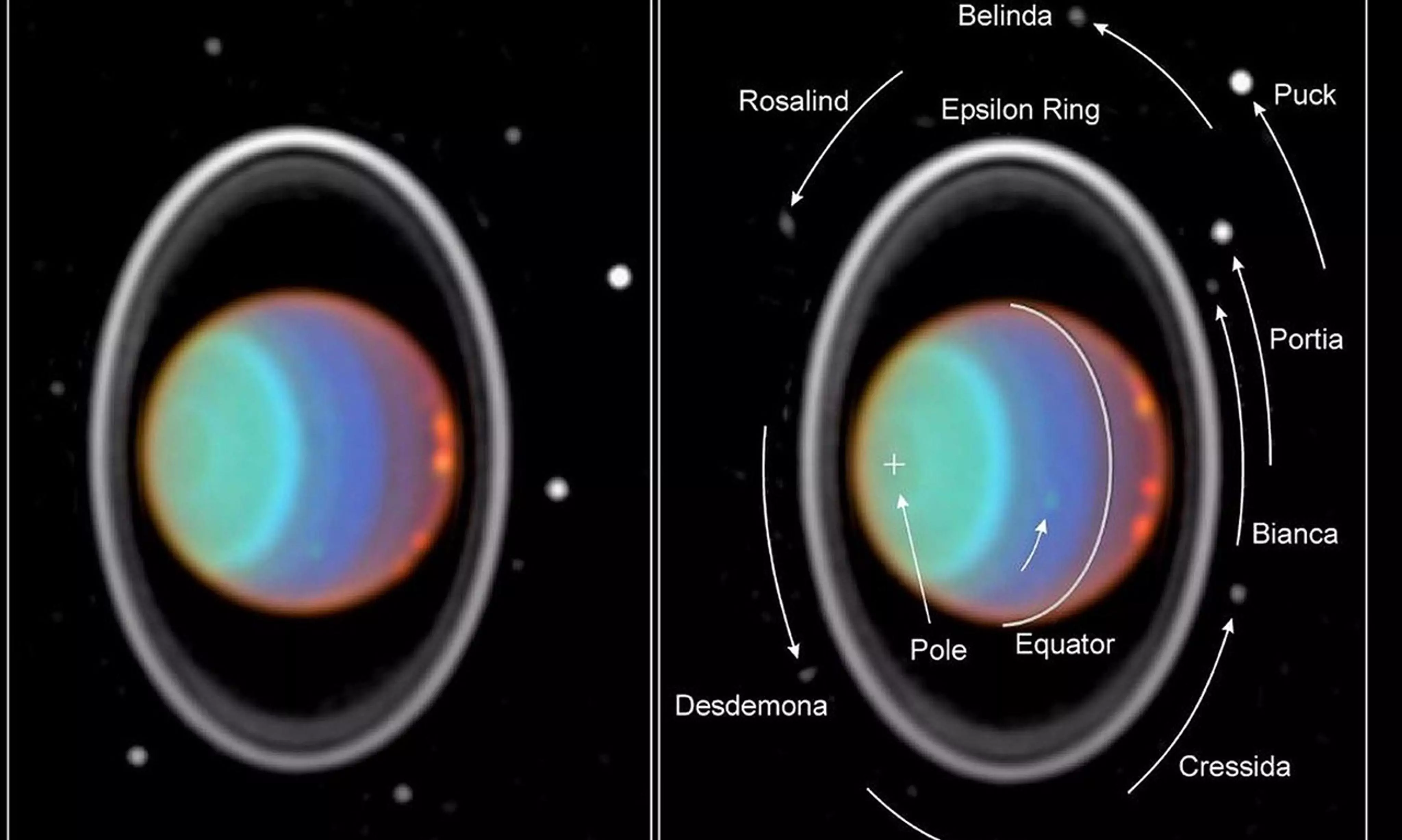
Icy moons of Uranus might support life: scientists
text_fieldsNASA picture.
Washington DC: Scientists believe that the five moons of Uranus might have hidden oceans and potential to support life instead of being cold and lifeless, as believed before.
BBC reported that most of the world’s knowledge of Uranus is from NASA’s Voyager 2. Now, scientists believe from recent analysis that Voyager, which went past Uranus 40 years ago, must have witnessed the planet during an intense solar storm, which potentially skewed earlier perceptions of the Uranian system.
Uranus is an icy-ringed planet located at the extreme edge of the solar system. The planet is one of the coldest and has an extreme tilt.
As per the latest findings, Voyager 2 might have gone past the planet during a strong solar activity, and the planet’s magnetic field must have been disrupted, sweeping away atmospheric material.
This must have given scientists an inaccurate view of the planet, Dr William Dunn, an expert from University College London, said. He said that the fresh findings suggest the Uranian system might be far more intriguing. The planet might have moons with conditions that could support life, and there is a possibility that oceans might be hidden under their surfaces.
Meanwhile, NASA is planning a return mission to Uranus, reports NDTV. A Uranus Orbiter and Probe is expected to be launched in the next decade and will reach Uranus by 2045. Then, scientists could find out if the icy moons of Uranus could host life or not.
NASA’s Dr Jamie Jasinski, who re-analysed the Voyager data, said that the insights from the recent study will shape and design the instruments of this upcoming mission so as to capture accurate data bypassing solar interferences.























